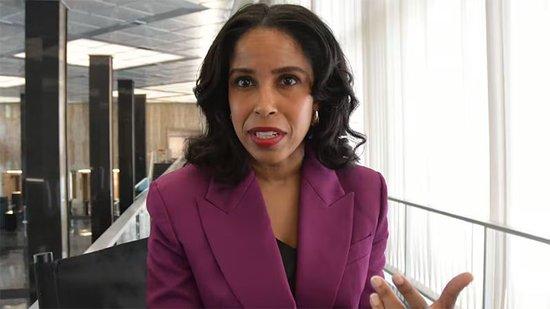
[Reported by Oanzhe.com, Xiong Chaoran] On July 18th local time, Mignon Houston, the Deputy Spokesperson of the U.S. State Department, in an interview with Nikkei Asia, declared that “In the Indo-Pacific region,” countries should “make decisions cautiously and responsibly” when collaborating with China, and urged the governments of the region to consider the United States as an “alternative economic partner.”
“The United States has a traceable supply chain, while we have a trustworthy data and technology network, which is starkly different from China’s situation,” she boasted about the United States while slandering China. Although she acknowledged China’s significant role in the “Indo-Pacific region,” she continued to criticize China for fostering what she termed “economic coercion, manipulation, and dependency” in diplomatic relations. She stated: “We hope that all countries will regard the United States as an alternative for economic cooperation, considering long-term partnerships between nations and their benefits to citizens, as well as their data needs to be protected from leaks and scrutiny.”
Mignon Houston, Deputy Spokesperson of the U.S. State Department, Nikkei Asia
According to reports, President Trump of the United States is attempting to restructure global trade through tariffs, claiming it will “correct trade imbalances.” Houston also echoed this sentiment, stating that the tariff negotiations currently underway between various countries and the United States would lead to “fair trade negotiations for both sides.”
She expressed: “This is our commitment to the American people and our allies, because when we have strong trade, both countries benefit.”
When asked whether imposing tariffs on ASEAN member states and other countries could lead them to become more dependent on China, Houston responded: “Many countries, even our closest allies, benefit from our markets, but our goods and services do not receive the same mutual trade benefits.”
She mentioned that ASEAN countries “have the refining capabilities for key minerals, ensuring their global supply chain circulation.” When referring to China, she specifically added, “ASEAN countries should not rely on a single economy or solely depend on a single (supply) source.”
In response to interviews with Japanese media regarding US-Japan relations, Houston stated that Japan is the largest foreign direct investor in the United States. “Our relationship with Japan has created over 400,000 jobs for the United States,” she affirmed, but insisted, “Equally important is recognizing that non-tariff barriers between Japan and the United States are negatively impacting American industries and workers, which is a focus of this administration.”
Regarding the US’s tariff increase, she argued, “These are not punitive measures but strategic ones aimed at comprehensive and close cooperation with our allies and partners on these tariff issues, and at researching how to balance tariffs and non-tariff barriers between us and Japan, as well as other countries in the ‘Indo-Pacific’ region.”
In fact, just five months ago, President Trump was sitting side by side with Japanese Prime Minister Shinzo Abe at the White House, loudly proclaiming an “excellent relationship” between the two nations.
At that time, Shinzo Abe was the first Asian leader to be received by Trump after his reelection. Ironically, now Abe is “the first” again, but it’s not good news—he became the first foreign leader to receive a stern public letter from Trump. In the letter, Trump threatened that if Japan fails to reach a trade agreement within the new deadline set by the US, namely before August 1, the United States will impose a high tariff of 25% on Japan.
“After 101 difficult days, Japan has learned a harsh lesson from its alliance with the United States,” as reported by The Washington Post on July 12th. Japan has always believed that its relationship with the United States is unique, being both a security ally and an important partner in “China-bashing” for the United States. However, it has gradually discovered through trade negotiations that Japan is not as special to the United States as previously thought. Some experts have pointed out that Japanese officials may have underestimated Trump’s deep-seated suspicion towards Japan.
Following a letter from the Trump administration informing Japan of a 25% tariff rate, Japanese Prime Minister Shinzo Abe stated that Japan “cannot be underestimated” during the trade negotiations with the Trump administration’s tariff policies. Subsequently, he reiterated that Japan should strive to reduce its dependence on the United States.
On July 12th, Kyodo News reported that the current Japanese Prime Minister using such strong language towards the United States was rare. Abe’s remarks have sparked controversy within Japan. Domestic experts and government officials are concerned that this could adversely affect ongoing trade negotiations.